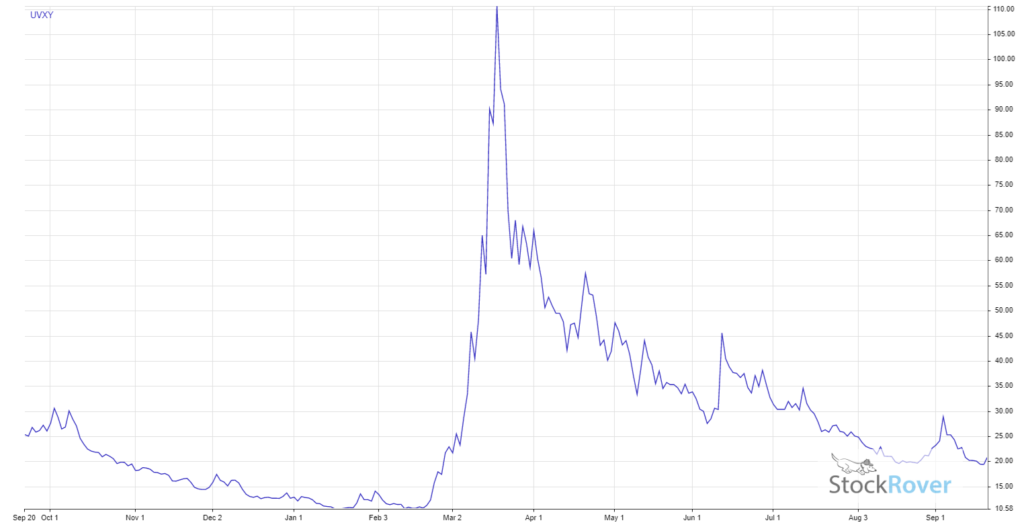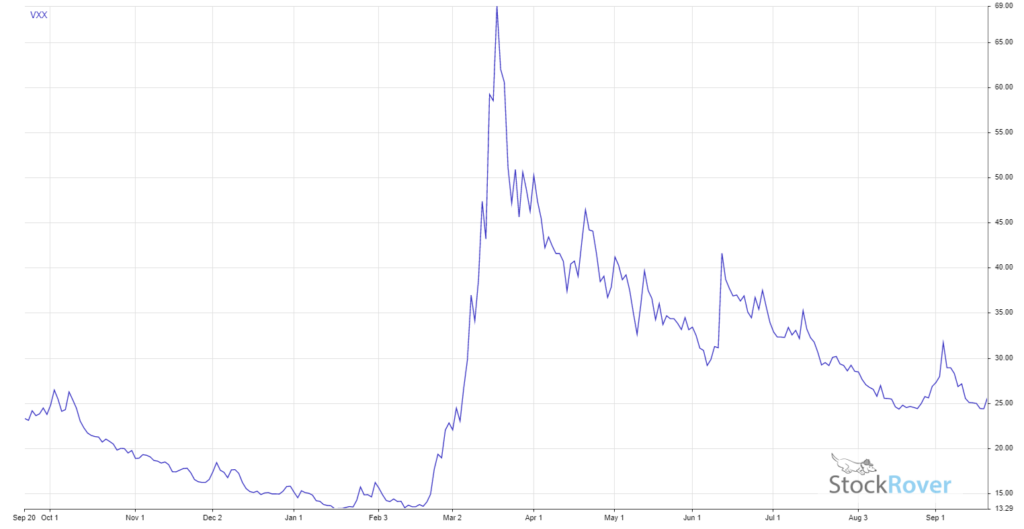Chaos has resumed. There’s still no vaccine for the coronavirus. Lawmakers remain deadlocked over another round of stimulus, and now with weeks to go before the U.S. elections the U.S. Supreme Court’s Ruth Bader Ginsburg passed away, creating a fiery war of words between both parties over who will fill her seat and when.
All of this news is making markets far more volatile.
[insert and center a one-year VIX chart. See what it looks like from StockRover.com. Link to same link as in CTA.]
In fact, we can see that by looking at the market fear gauge, otherwise known as the Volatility Index (VIX). You see, as markets melt down and volatility increases, the value of the VIX begins to push higher. On Monday, for example, the VIX jumped 17%, or 4.46 points, as the major indices, such as the Dow sank more than 900 points.
On the expectation we’ll see even more volatility near-term, investors are pushing into ETFs and ETNs, which historically rise along with the VIX, or the fear gauge.
Some of the top ones that typically run include the following:
ProShares Ultra VIX Short-Term Futures ETF (UVXY)

The ETF was designed to match two times (2x) the daily performance of the S&P 500 VIX Short-Term Futures Index. Each time the VIX moves higher, so does the UVXY. For example, when the VIX was up 4.46 points on Monday, the UVXY ETF jumped nearly $1.70 a share.
VelocityShares Daily 2x VIX Short-Term ETN (TVIX)
This ETF tracks an index of futures contracts on the S&P 500 VIX Short-Term Futures Index. The TVIX ETN also offers good exposure to the VIX. When the VIX ran higher on Monday, the TVIX ETN was up as much as $4.45 a share.
iPath S&P 500 VIX Short-Term Futures (VXX)

The VXX ETN, which provides exposure to the S&P 500 VIX Short-Term Futures Index. Again, when the VIX popped on Monday, the VXX ETF was up as much as $1.70 a share.
With elections nearing, the virus still spreading, falling tech, chaos over the Supreme Court, and tensions with China, volatility could be about to return in a big, big way. The above ETFs and ETNs offer investors great exposure to elevated volatility, or the expectation of higher volatility.
At time of this writing, Ian Cooper does not hold a position in any of the stocks mentioned.





